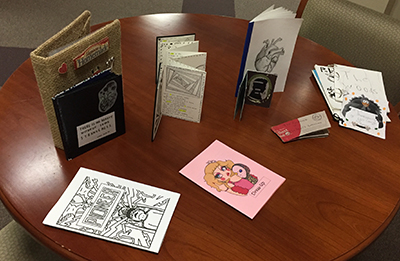Teaching Philosophy
I value a writing pedagogy that centers my students and emphasizes the role writing plays in helping them create an engaged, critical, and compassionate community of learners; in my classroom and the world beyond.
Why I teach
I didn’t learn to read or write until the fourth grade. I struggled with dyslexia as a child and barely got through high school English with a D- in my final semester. I loved stories and story-telling, but it took me a lot of work to learn how to transform my ideas into readable words, paragraphs of prose, lines of poetry, and other forms of writing that expressed the meaning I intended. Now, I read voraciously and I don’t go a day without spending an hour writing something. Words connect me to the worlds I inhabit and the people that inhabit them with me in ways I will spend the rest of my life exploring. So far, I have discovered language to be a verb, an act of community, and I intend to spend my life helping others connect to the languages and literacies that they use, intentionally or not, to shape their own worlds.
Teaching values
Student-centered learning
As an instructor of both rhetorical and creative writing, my first task in any classroom is to invite my students to collaborate in constructing outcome goals for the semester that reflect both their own learning interests and my own responsibilities as the course’s instructor. By the end of the semester, my students are designing their own final assignment that lets them practically apply their classroom experiences to a project that demonstrates how they have met their outcome goals. I do this because I believe a student can only buy in to an experience they are given access to own. As a professor, it is my responsibility to present students with the opportunity to take accountability for their education, which means situating the student in a position to be meaningfully connected to their own learning outcomes.
Community-aware learning
Writing is inherently a process of community engagement. Whether the targeted audience is a specific individual, a general-public or a group somewhere between, a writer, by writing, participates in a discourse community. Good writing, professional or playful, is made possible when writers can appreciate how their readers will experience their words. A good writing course helps its students understand the multitude of values embraced by the different audiences they will be engaging with their writing, as well as the potential value their writing can add to those communities.
Additionally, I encourage my students to recognize the writing classroom itself as a community that they create with me where all of us will challenge and support each other as learners and writers. My students learn to play an active part in the building of this community that is both inclusive and rigorous.
Diverse, critical thought
There are as many paths to connecting students to the power of their voice, as there are people in the classroom. As an instructor, I refuse to essentialize one writing process, or the conventions of one discourse community, over the potential of others. Instead, I seek to utilize the classroom as a space for instructor and student to respectfully and critically engage in exploring the vast realms of possibility and consequence that exist within different approaches to writing. In my classroom, we seek out writers from a diverse array of experiences, upbringings, as well as racial, gendered, sexual, abled, and economic social identities to help us understand the relationship between our words and our Selves.
Writing: processes and productions
Writing is both a verb and a noun and should be learned as a process of making meaning and a meaningful text that exists within one of worlds we inhabit.

Sample Student Projects from a creative writing class

